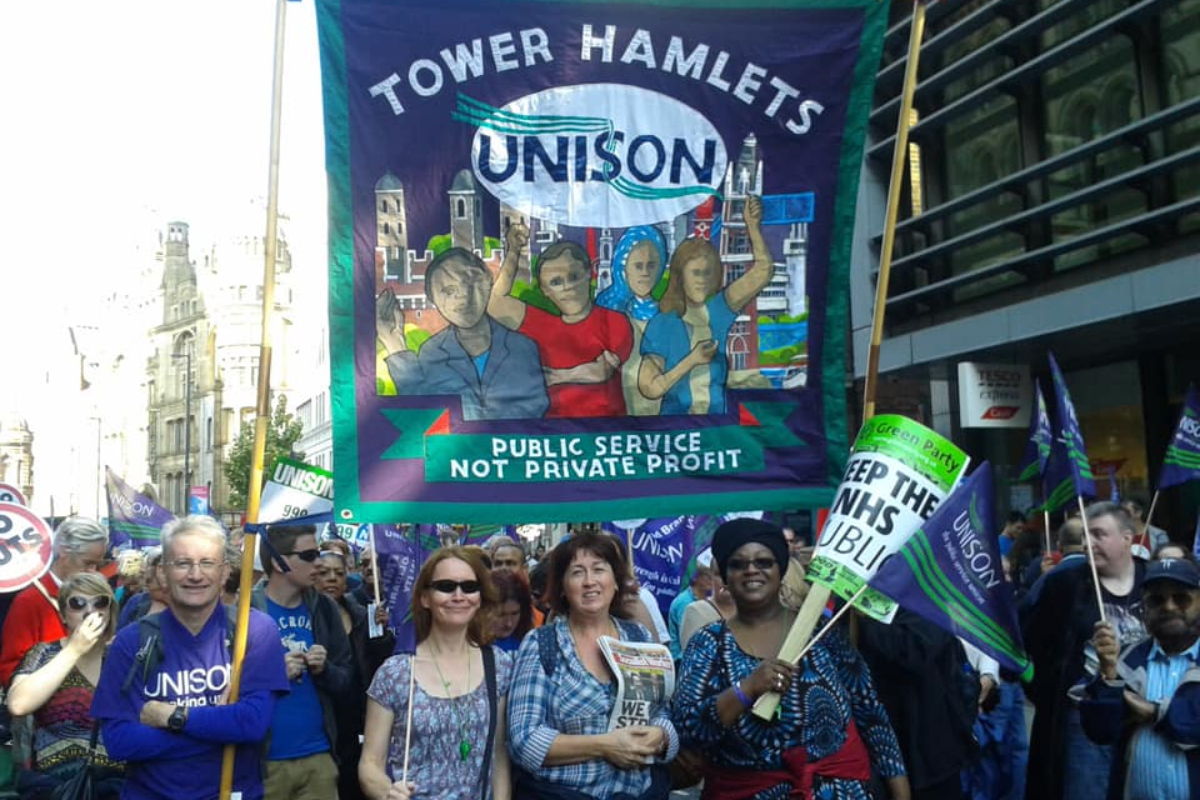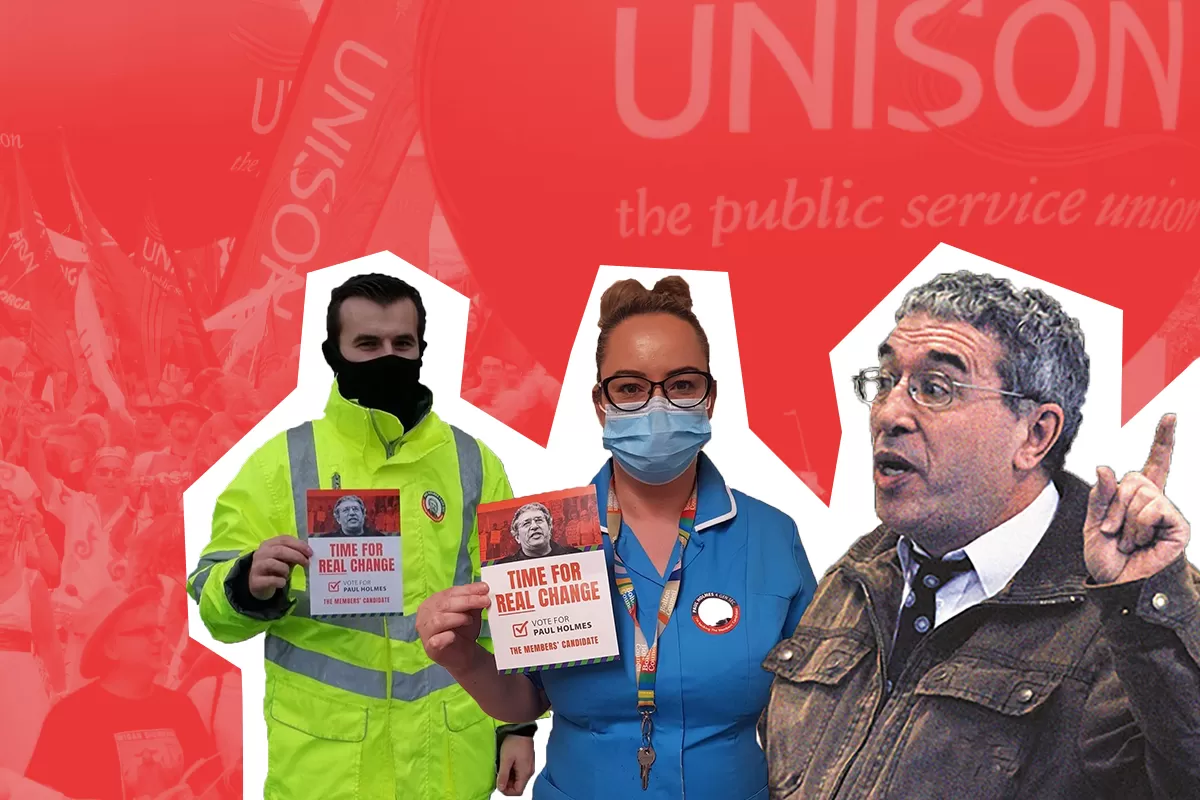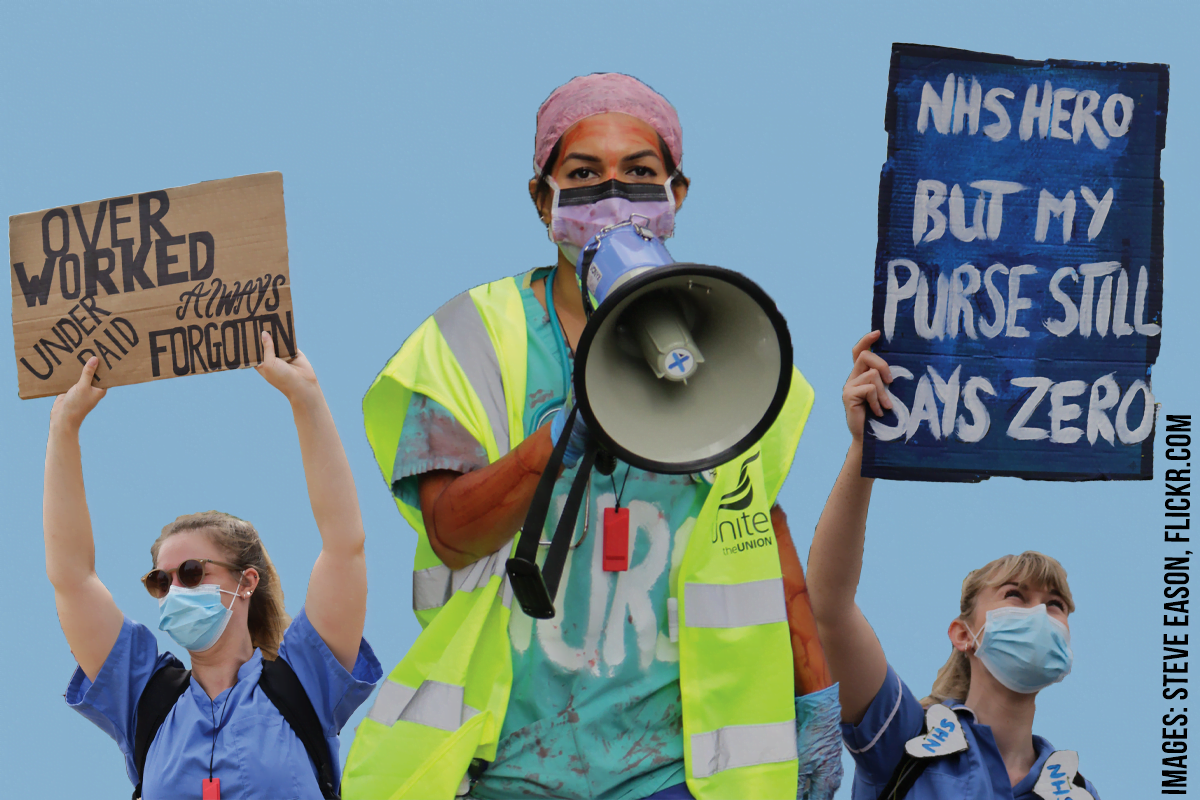Unison members in the NHS and local government are currently being balloted in disputes over pay. With workers in other unions facing the same battle, the potential exists for a united public sector strike. But this requires fighting leadership.
A battle over pay is brewing in the public sector. This should come as no surprise. Public sector workers – particularly in the NHS – have been on the frontline during the pandemic. Wages and conditions in local government have been eroded by a decade of austerity. And the Tories’ wage freeze has generated enormous anger, especially since Rishi Sunak’s recent Budget was full of giveaways for champagne-quaffing businessmen on short-haul domestic flights.
The fight for a decent pay rise should be an open goal for the unions – particularly in the health service. There is massive public support towards NHS staff, given the role that they have played during the coronavirus crisis.
Despite this, the Unison health service group executive (SGE) has been less than effective in leading the struggle against the government’s pathetic 3% pay offer, which has effectively been imposed on members.
Instead of rejecting the pay offer, which would have led to an immediate strike ballot, the right-wing-dominated SGE sought merely to ‘oppose’ this Tory proposal; in other words, to hold a non-binding consultative vote, which would not necessarily lead to a ballot over industrial action.
In addition to this, they have rejected calls from members and campaigners for a 15% pay rise for all NHS staff, in favour of their own ‘One Team, 2K’ demand. But even 15% would only partially redress the real-terms pay cut experienced by healthcare workers since 2010. Arguing for less than this only makes the union look weak and timid in the eyes of the employers.
Healthcare
 Despite this, the ‘summer consultation’ ballot saw an 80% rejection of the 3% offer. A further indicative ballot is now currently underway.
Despite this, the ‘summer consultation’ ballot saw an 80% rejection of the 3% offer. A further indicative ballot is now currently underway.
Many active Unison members are questioning why the SGE and the union bureaucracy feel the need to run one non-binding ballot after another. The only effect this can possibly have is to demobilise and demoralise the membership before they’ve even had a chance to fight.
Whatever the reasoning, this process clearly indicates a growing contradiction between what is required to win, and what the right-wing SGE are capable of delivering.
NHS workers need a fighting union leadership – one that reflects the self-sacrifice and determination of rank-and-file members. As it stands, the situation right now is a case of lions (or lionesses, in the main) led by donkeys.
Our pay & information stall outside North Middlesex Hospital ?? #BeCounted #JoinUNISON pic.twitter.com/1v7XcqxMJn
— Rachael Johnson ?? (@Unionorganiser) November 17, 2021
Local government
The contrast with the union’s efforts in local government is very instructive. Here, Unison – together with the GMB and Unite – has sought a 10% pay rise for local government and education staff.
The Tory government initially insisted on a pay freeze; and the employers eventually came back with a 1.75% pay offer, increasing to 2.75% for the lowest paid.
But local government workers have seen a 25% fall in real-terms pay since 2010. The 10% pay rise demanded by the unions would barely scratch the surface. Nevertheless, it would be an important step forward, helping to build confidence to fight for more.
Did you know: Local government pay is worth 25% less than it was in 2010? In effect, #LocalGov workers work 1 day a week for free.#EnoughIsEnough
Find out why UNISON is asking #School and #Council workers to #VoteYes for strike action on pay:https://t.co/xDUAWahd0I
— UNISON Local Government (@UNISONinLG) November 18, 2021
79% of Unison members in local government voted to reject the latest offer in an indicative ballot. And now the union is balloting for industrial action.
Unison has always correctly highlighted the scandal of low pay in this field. Currently, over 41,000 Unison members in local government and schools earn less than the living wage of £9.50 per hour.
The task now for the local government SGE is to mobilise the membership, build the pay campaign, and ensure a resounding vote for industrial action, with a turnout of over 50%.
This is a tall order, given that 375,000 members are being balloted. It will require a lot of work on the ground in every school, depot, and office. But it is entirely possible to achieve.
United action
 The lessons of the 2011 pensions dispute are clear. If the union leadership can mobilise the membership – fighting to defend their interests in the face of austerity – then we can affect real change.
The lessons of the 2011 pensions dispute are clear. If the union leadership can mobilise the membership – fighting to defend their interests in the face of austerity – then we can affect real change.
Alongside our sister unions, we could beat back this criminal and corrupt Tory government. In fact, a militant, determined, and coordinated fight could bring it down altogether.
For the Unison left, organised around the #TimeForRealChange campaign, these pay battles represent an opportunity to break with the ‘same old, same old’ policy of the right wing: taking the line of least resistance; letting the members down; and failing to deliver.
With all the unions in local government rejecting the employers’ pay offer, and workers in healthcare also fighting for a real wage increase, there is a clear opportunity for united action across the public sector.
This is an excellent opportunity to break the pay freeze, and to go on the offensive against the capitalist class and their rotten political representatives in Parliament. But that requires bold leadership.
Real change
 Unison is the decisive union in the country’s public sector. Its leaders therefore have a responsibility and duty to use the union’s weight to the fullest.
Unison is the decisive union in the country’s public sector. Its leaders therefore have a responsibility and duty to use the union’s weight to the fullest.
This means taking steps to organise and ensure coordinated action across the whole public sector – linking these struggles together and building for a one-day public sector strike.
The 2011 pensions dispute demonstrated the potential power of the trade unions in building a united campaign. But the Unison leadership, in particular, allowed that movement to dissipate.
Previously, the union’s leadership has always sought to avoid conflict with the Tories, to the detriment of our members. But as the left victory in the Unison NEC elections earlier this year illustrates, members want real change. Now more than ever, it’s the task of socialist activists to deliver it.






